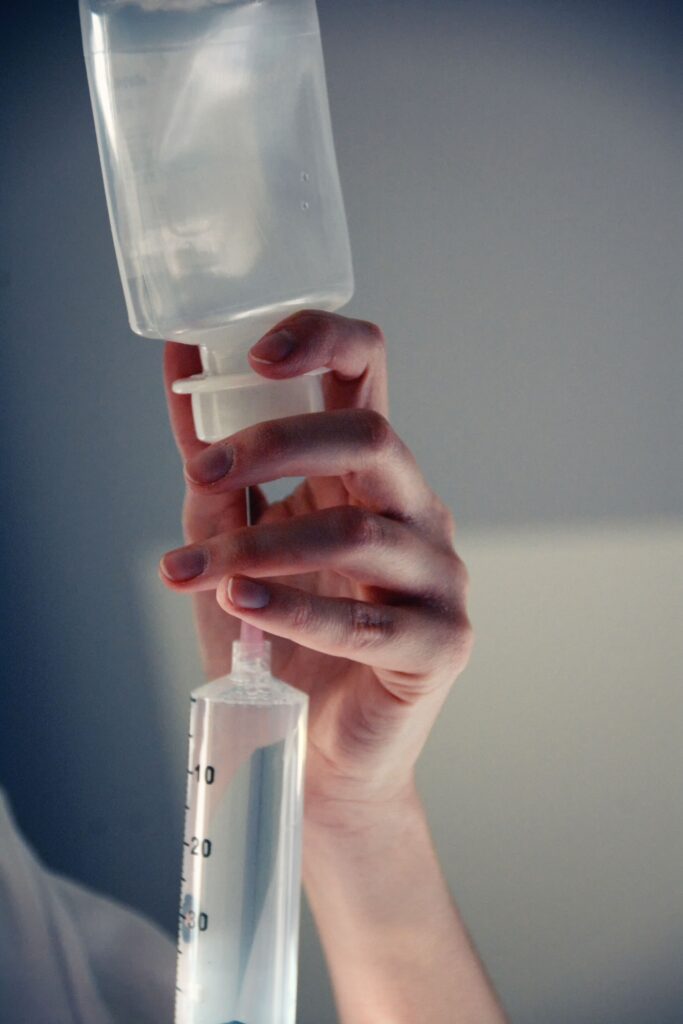Ketamine Therapy For Mental Health
Ketamine has recently gained attention as a treatment option for PTSD, anxiety, and other similar conditions. While historically used as an anesthetic for surgery, ketamine is currently being used in low dosages to assist treat the symptoms of certain mental health problems.
Ketamine is a dissociative anesthetic with a long history in medicine and as a street drug. Because it can result in hallucinations and dissociation at large doses, it’s frequently taken as a recreational drug. Yet, ketamine can help elevate mood and lessen anxiety when taken in small quantities under the care of a professional.
Ketamine can be an effective treatment for depression, especially for patients who have not reacted well to previous therapies, according to recent studies. In fact, ketamine was proven to be much more effective than a placebo in treating depression in a research that was published in JAMA Psychiatry. Within 24 hours of treatment, ketamine patients reported a considerable improvement in their symptoms, and these effects could continue up to two weeks.
Moreover, ketamine is being researched as a possible treatment for anxiety disorders. According to a study that appeared in Biological Psychiatry, ketamine can help people with social anxiety disorder feel less anxious. Ketamine has showed promise in the treatment of PTSD, OCD, and other anxiety-related diseases, according to other studies.
The fact that ketamine acts swiftly is one of the factors making it such a viable treatment option. Patients who are having mental health issues may find it distressing since traditional antidepressants take weeks or even months to start functioning. On the other hand, ketamine can begin to act after only a few hours of administration. Those who are suffering from severe symptoms may find this fast-acting effect to be especially beneficial.

In a therapeutic environment or at a doctor’s office, ketamine is often given intravenously. To ensure their safety, patients are continuously watched throughout the course of the treatment. Despite being widely regarded as safe, ketamine can cause side effects that include dissociation, hallucinations, and nausea. These negative effects, nevertheless, usually pass quickly.
It’s crucial to understand that ketamine cannot treat any mental health disorder, including PTSD, anxiety, or depression. Instead, it is a form of care that can lessen symptoms and enhance quality of life. Also, not everyone should use it. Ketamine therapy may not be suitable for patients with a history of substance misuse or certain medical disorders.
Ketamine is a promising option for people with depression, anxiety, PTSD, and other related diseases despite these drawbacks. It provides a quick-acting substitute for conventional antidepressants and can aid people whose symptoms haven’t improved with other therapies. There may be even more uses for ketamine as long as research into its usage to treat mental health issues is conducted, according to experts.
How is Ketamine Administered?
Ketamine is typically given intravenously, which means it enters the bloodstream right away through a vein. Depending on the patient’s demands and the particular ailment being treated, the dosage and frequency of administration may change. Ketamine is typically administered in lesser doses for the treatment of depression and anxiety. An initial dose for depression treatment is often administered intravenously over a 40- to 60-minute period at around 0.5 milligrams per kilogram of body weight. Depending on the patient’s response, this dose may be changed either up or down.
In addition to intravenous administration, ketamine can also be given sublingually (under the tongue) or intramuscularly (under the muscle). Nevertheless, both techniques are less popular than intravenous administration.
Ketamine therapy for depression and anxiety is typically provided in a clinical context, such a doctor’s office or clinic, because it is a therapeutic modality. During the infusion, the patient is typically pleasantly sitting or reclined, and the medical personnel keeps a careful eye on them the entire time.
Since it is important to monitor the patient’s vital signs and mental state throughout the treatment, telemedicine is not yet employed for ketamine infusion therapy. To discuss treatment objectives and follow-up care, certain clinics may, however, offer pre- and post-therapy telemedicine appointments.

The need of the patient and the illness being treated may also affect how frequently ketamine is administered. While some patients may only need a single infusion to notice considerable symptom alleviation, others might need several infusions spaced out over a few weeks or months. The patient’s medical team will decide on the precise treatment plan depending on their unique needs.
How Quickly Does Ketamine Work?
The speed with which ketamine acts as a treatment for depression and anxiety is one of its advantages. Some people claim to have symptom relief within hours of receiving their initial injection, however others might not see any change for a few days. The effects of a single ketamine infusion typically persist for a few days to a few weeks, although maintenance infusions could be necessary to maintain the advantages for a longer time.
Is Ketamine FDA Approved?
It’s crucial to remember that the FDA has not yet approved the use of ketamine for treating depression, anxiety, PTSD, and other comparable illnesses. For patients who haven’t responded well to traditional therapies, numerous clinics and doctors are now offering ketamine therapy as an alternative. Before choosing a course of treatment, patients should carefully consider all of their available options, talk with their medical team about the potential dangers and advantages of ketamine treatment, and ask any questions they may have.
Who is Eligible For Ketamine Treatment?
Depending on the clinic and medical expert administering the treatment, different patients may meet different qualifying requirements for ketamine treatment for depression, anxiety, PTSD, and related illnesses. To be eligible for ketamine treatment, a person must meet certain criteria, some of which are general and others of which are specific.
Candidates for ketamine therapy can include those who:
- Have a diagnosis of anxiety or depression that is resistant to therapy
- Have not shown good results with other therapies
- Are not presently dealing with a medical emergency or crisis
- Aren’t breastfeeding or pregnant (as the safety of ketamine during pregnancy and breastfeeding is not yet established)
- Not recently engaged in substance misuse or addiction
- Have no health issues that would make ketamine treatment dangerous (such as uncontrolled high blood pressure, liver disease, or certain heart conditions)
- Aren’t taking any drugs that could affect how ketamine works? (such as benzodiazepines or opioids)
Before beginning ketamine therapy, patients should talk to their medical team about their medical history, any dangers, and any issues they may have, and it’s important to choose a provider with specific expertise in this to ensure a proper protocol and a safe result. If you’re interested in learning more, or to see if you’re a candidate, please give us a call.


